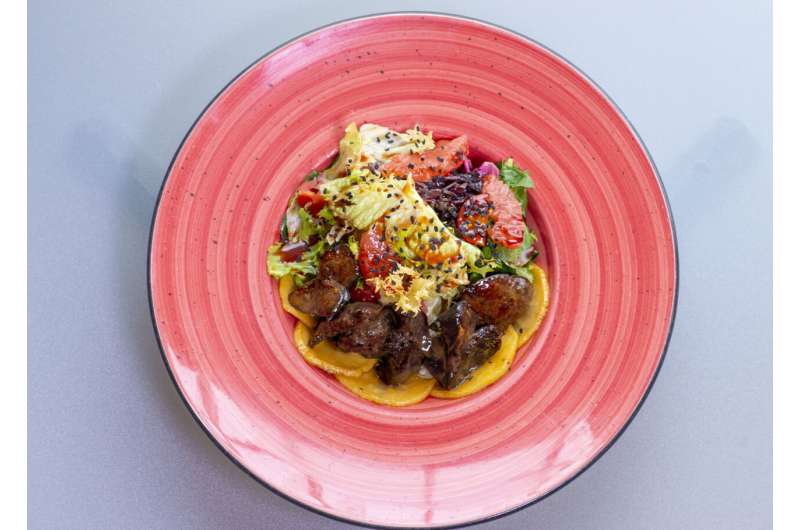Spaceflight wreaks havoc on liver metabolism

The latest findings of a series of studies on mice that examined harmful effects caused by spending time in space show that gene expression related to liver metabolism is altered in response to the space environment. The benefit of these findings is that it may be possible to offset these changes with dietary supplementation during spaceflight.
Like other inhabitants of this planet, humans have evolved for life on Earth, not life in space or elsewhere. During spaceflight, the human body is exposed to a harmful environment, characterized by null or microgravity and high radiation levels. The liver is affected by spaceflight more than any other organ—its crucial role in neutralizing harmful substances in the body means that spaceflight places incredible demands on the organ.
"Environmental stressors, such as high radiation and microgravity, induce a state of oxidative stress," explains Professor Iwao Ohtsu. "To deal with reactive oxygen and nitrogen compounds, the liver uses its limited resources, that is, antioxidant sulfur-containing compounds." The research team conducted novel experiments to compare liver gene expression levels between mice exposed to microgravity, mice exposed to simulated gravity on the International Space Station, and mice at ground level on Earth.
Mice that traveled to space and back had a lower antioxidant capacity because they had lower levels of the sulfur-containing compounds (e.g., ergothioneine, cysteine, and glutathione) that play a role in protecting cells by reducing reactive oxygen compounds, which limits free-radical damage. Overall, many indicators of oxidative stress were evident in the livers of these mice. In addition, there was greater expression of genes related to oxidative stress and sulfur metabolism pathways (which deplete levels of sulfur-containing antioxidant compounds) in mice that had been exposed to space.
Some effects, however, only occurred in mice exposed to microgravity. "Consequently, we were able to identify that some aspects of altered liver metabolism are counteracted by exposure to artificial gravity, whereas those caused by other environmental effects could be treated with alternative solutions, such as the addition of dietary supplements to astronauts' diets," says Professor Ohtsu.
This research not only identifies factors that could exacerbate the likelihood of liver damage but, by clarifying the role of specific metabolic pathways, also demonstrates the potential for existing drugs or dietary supplements to be used to treat or prevent such damage as humans embark on a new era of space exploration.
More information: Ryo Kurosawa et al, Impact of spaceflight and artificial gravity on sulfur metabolism in mouse liver: sulfur metabolomic and transcriptomic analysis, Scientific Reports (2021). DOI: 10.1038/s41598-021-01129-1




















